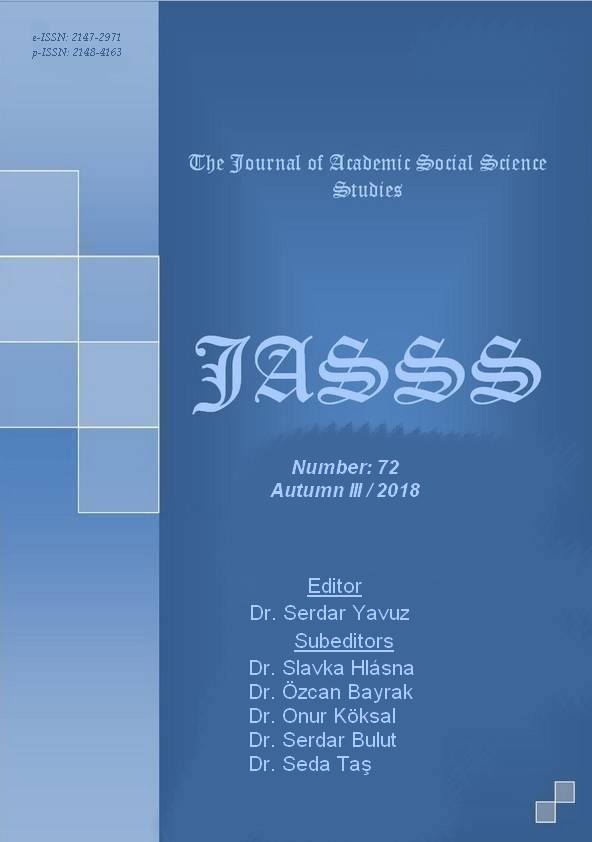Author :
Abstract
Rusya’da yaşanan 1917 Ekim devriminin (Bolşevik devrimi)amacı yüzyıllardır çarlık sistemi ile yönetilen Rusya’da monarşik sistemi kaldırmak ve ülkeyi sosyalist düşüncenin temel ilkeleri ile yönetmektir. Dolayısıyla devrim, ülkede toplumsal, siyasi ve ekonomik açılardan köklü değişimleri de beraberinde getirir. Bu değişimlerin temel amacı Rus halkının pek çok açıdan daha özgür ve refah içinde yaşayabilmesidir. Ancak devrimin ilk yıllarında bu amaçlara ulaşılamadığı görülür. Nitekim ülke siyasi ve ekonomik sorunlar yaşamaktadır ve Bolşevikler ve Menşevikler arasında yaşanan iç savaş toplumsal düzensizliği daha da artırır. Ülkede meydana gelen bu yeni sürecin, edebiyat ve sanat yaşamını da etkilediği görülür. Nitekim devrimden sonra edebiyatçılar ve sanatçılar büyük bir baskı içine girerler. Bu baskı, ülkedeki entelektüel kesimin ölmesine ya da sürgün edilmesine neden olur. Hatta Bolşevikler ve Menşevikler arasındaki iç savaş sırasında, Rus göçmen edebiyatı olarak adlandırılan ve dört dalga halinde yaşanan bir edebi süreç başlayacaktır. Lenin’in ölümünden sonra 1924 yılında lider olan Stalin’le birlikte, “yeni sovyet insanı” kavramı ortaya çıkar. Stalin’e göre, edebiyat dünyası da yeni insanı yaratmak için harekete geçmelidir. Bu süreçten sonra sadece Rusya sınırlarında yaşayan halkın değil Sovyetler birliğine bağlı tüm halkların bu düşünce ile sanatlarını yaratmaları istenir. Ancak bu istek, tüm Sovyetler birliğinde milyonlarca kişinin sürgün edilmesine, kurşuna dizilmesine ya da ortadan kaybolmasına neden olur. Bu bildiride, ekim devriminden ikinci dünya savaşına kadar olan süreçte Rus edebiyatında yaşanan değişimler genel olarak değerlendirilecektir. Konu çoğulcu yöntemle ele alınacaktır.
Keywords
Abstract
The aim of the October 1917 revolution (Bolshevik revolution) in Russia was to remove the monarchical system in Russia, which had been ruled by the tsarist system for centuries, and to rule the country with the basic principles of socialist thought. Therefore, the revolution causes radical changes in social, political and economic terms in the country. The main purpose of these changes was to help the Russian people live in a more free and prosperous way in many respects. However, in the early years of the revolution, it can be seen that these goals cannot be achieved. As a matter of fact, the country has political and economic problems and the civil war between the Bolsheviks and the Mensheviks and this increases the social disorder. It is seen that this new process in the country also affected the life of literature and art. Indeed, after the revolution, literature artist and artists were under great pressure. This pressure leads to the death or deportation of the intellectuals in the country. Also during the civil war between the Bolsheviks and the Mensheviks, a literary process called the Russian immigrant literature ,which was occured in four stages,began. After Lenin's death in 1924,when becomes Stalin becomes the leader the notion of a "new Soviet man" arised. According to Stalin, the world of literature must act to create a new Soviet man. After this process, not only the people living on the borders of Russia, but all the people connected to the Soviet Union are asked to create their art and thought. This request, however, caused millions of people to be deported, shot or disappeared in the Soviet Union. In this study, the changes in Russian literature in the period from the October Revolution to the Second World War will be evaluated in general. The subject will be covered by the pluralistic method.





